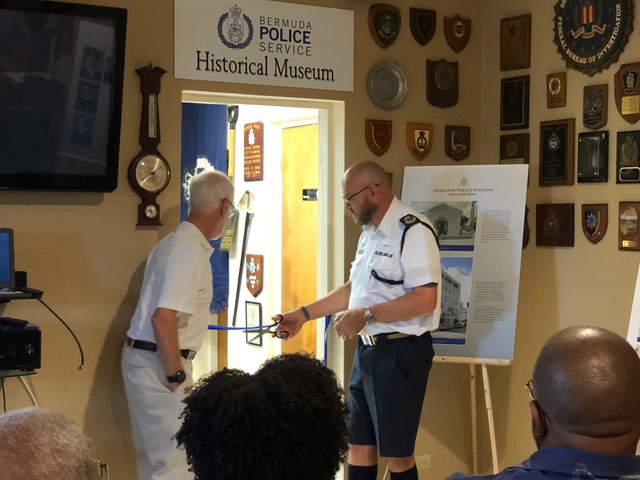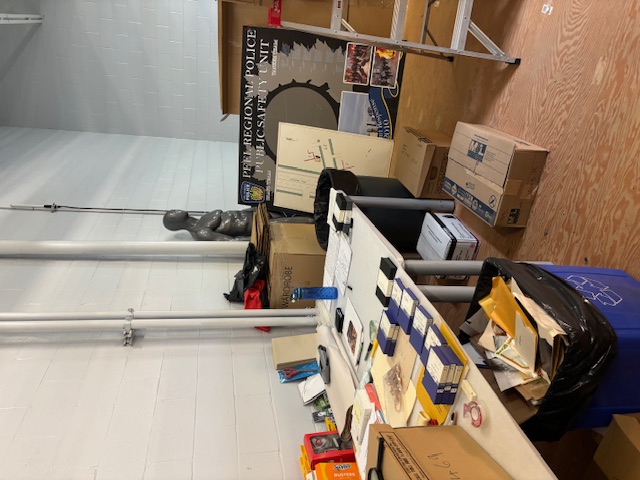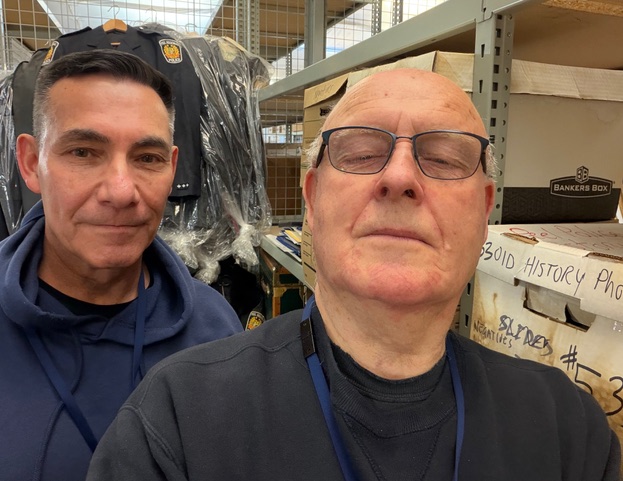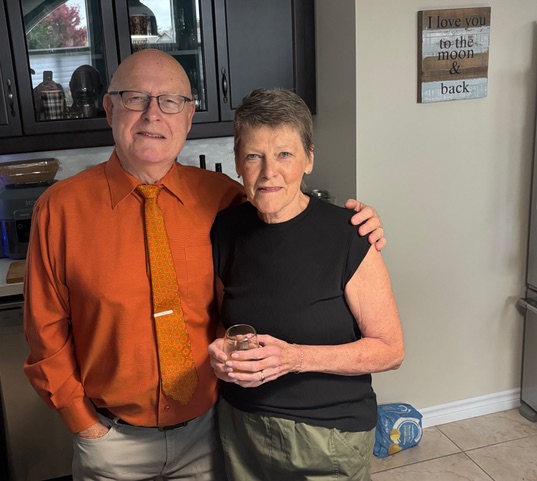Webber goes for a swim!
 Retired Supt. George Rose
Retired Supt. George Rose
INTRODUCTION
As one of two Detective Inspectors working out of the Hamilton CID office in the mid-1980’s it was my job to monitor and act as necessary on all criminal activity taking place throughout the Island on a 24-hour basis. To this end and commensurate with ongoing reports of trespass and house breakings of residences along Pitts Bay Road, Pembroke I decided to conduct covert physical surveillance in the area in an effort to capture the person(s) responsible. It was noted that one particularly large two-story house seemed to attract prowlers and thieves of opportunity on a frequent basis, and after the lady of the house had again reported that she was missing cash from her handbag left unattended on an inside chair close to the kitchen door, I decided to act.
On Wednesday, May 16th, 1984 together with Dc Stevie Lightbourne I engaged on a morning foot patrol over the area along of Pitts Bay Road including Point Shares and Mill Shares. We spoke to a house guest at Colonel Pudney’s residence who had been victim of theft some days earlier and to a gardener who accompanied us during a tour of the area showing us likely escape routes. Later that morning I obtained helpful ariel photographs of Fairylands from Dc Roddy Barclay at SOCO.
The following morning, in preparation for working split-shift duties in the coming days, I collected handheld personal radios before resuming duties at 8.0pm that night when I joined Dc’s Jonathan Smith and Stevie Lightbourne in a foot patrol around Point Shares before taking up concealed observations at Col. Pudney’s residence. Heavy rain downpours occurred thereafter and further observations were halted until 10.0pm when the rain ceased and we decided to take up observations around a residence lying to the west off Pitts Bay Road, opposite Turnstile Lane. By prior arrangements with a friendly householder nearby we concealed the CID car in her garage and quietly walked the short distance to the house.
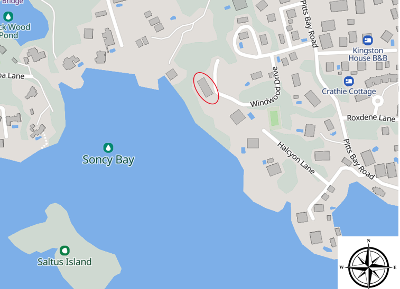 Soncy Bay
Soncy Bay
In order to provide difficult but adequate visual coverage of the exterior of the house, Dc’s Smith and Lightbourne each took up a concealed position at diagonally opposing corners of the residence from where one officer could cover any activity along the front and one side, while the other could see along the rear and remaining side of the house.
At 10.25pm I concealed myself at the southeastern corner of the residence at a distance away from the house which enabled me to see the changing rooftop levels stretching along the northeastern run of the dwelling.

Fifteen minutes later, at 10.40pm, I saw a crouching figure on the upper roof of the southeastern section of the house making his way from the south in a northerly direction. As I watched I saw the figure drop down from this upper roof level to a lower level covering the northernmost of two porches along the eastern side of the house. I broke cover and quickly moved closer to the northeastern corner of the house from where I clearly saw the crouching figure pause for some minutes at a lighted upper window above the porch. I saw that the figure was holding a pole similar to a broom handle in his left hand. Whilst the figure had his back to me and was seemingly concentrating on the lighted window, I continued walking northerly to a point past the chimney where I stood silently beneath the eaves. I was now hidden directly beneath the lighted window and could hear scuffling noises above me.
Momentarily the same figure dangled his legs down from the porch rooftop and dropped on his feet a short distance in front of me. We were both briefly startled as I shone my torchlight onto the prowler’s face and instantly identified the figure as Edward ‘Doc’ Richardson whom I knew well. I said, “Doc Richardson. The Police.”
Still holding the pole Richardson instantly turned away from me and sprinted first north and then turning west towards the harbour waters. I chased after him shouting loudly “Coming to you John.” As I cleared the northwest corner of the house, I saw Dc Lightbourne coming from my left and he joined in the pursuit of Richrdson some yards ahead of me.
I followed Dc Lightbourne down a steep grassy slope towards the rocky shoreline of Soncy Bay where I joined him on the rocks just in time to see Richardson dive headlong into the sea. We were then joined by Dc Smith and I told them both that I had positively identified the culprit as “Doc” Richardson. The three of us focused our torches on Richardson as he swam southwesterly away from us.
Some five yards from the shoreline he turned his face three-quarters to us presumably in an effort to see if we were following him into the choppy water. I again recognized the swimmer to be ‘Doc’ Richardson, as did Dc Lightbourne. We did not enter the water after him but I shouted to him, “Doc, it’s too rough. Come in.”
He continued swimming towards a nearby moored yacht and by our collective torchlights we saw him work his way around the bow and disappear from sight behind the yacht. I coordinated a general search procedure by both land patrols and the use of a marine police boat from their nearby Barrs Bay Park station who searched the yacht where we last saw Richardson and the other yachts moored nearby in Soncy Bay. There was no further gain that evening.


Early the following morning, Friday, May 18th, together with Dc’s Smith and “Johnny” Bean we joined scenes of crime officer Dc Alderson at the house where I spoke with the owner concerning the events of the previous evening. A search of the grounds was conducted resulting in Dc Alderson taking possession of what turned out to be a four-foot-long broom handle.
Later that morning I applied for an arrest warrant for Richardson before the Senior Magistrate briefly explaining to him the circumstances leading up to the events encountered the previous evening. I then went off duty returning at 8.0pm to continue the search for Richardson.
At 10.15pm, this time in company with Dc’s Bean and Lightbourne, we spotted Richardson on Princess Street where he was arrested on the prowling warrant. I cautioned him as he was patted down and he said: “Not me. Wrong man. I was in Spinning Wheel. Check DT Tucker and Ghandhi.”
Richardson was taken to Hamilton Police Station where he was further searched. His trousers were dropped to his ankles and I questioned him about a number of superficial scratches seen on his lower legs and ankles. He replied, “I got them playing football Monday.”
He was taken to the King Edward Memorial Hospital where he agreed to a doctor’s examination. On leaving the hospital Richardson was taken to his residence above VL’s on Court Street where his soaking wet sneakers were seized from beneath his bed by Dc Bean. Richardson was again cautioned and when asked for an explanation of their wet condition. He replied, “It’s rainwater. I got caught in the rain.”
Shortly before midnight during questioning at Central CID Richardson casually admitted to me, “Yes it was me you chased but I don’t know about nothing else. I can give you a statement.”
I remained about the office whilst Dc’s Bean and Lightbourne recorded ‘Doc’s’ statement under caution in which he admitted to the offences of prowling and unlawful trespass. The statement was followed by a series of recorded questions and answers but he would not admit to any further criminal activity. He explained in his statement that he’d been on the property when the heavy rain began and that he’d taken shelter in the lee during the rolling rainfall episodes. He said that as soon as the rain had stopped, he’d climbed up on the roof. [It is clear from this admission that Richardson was likely on the roof along the western side of the house at precisely the time that we were quietly assembling ourselves around the property.]
Richardson denied having taken the broom handle with him to the house saying that he’d found it lodged in the guttering on the roof. He admitted to having tried to raise the window screen above the porch but hadn’t done so because it would have created more noise than he wished. He denied attempting to break-in or having a felonious intent in mind. He admitted that the scratch abrasions on his legs were the result of his initial climbing access to the roof.
He was further detained over the weekend during which time he was variously interviewed in relation to investigations of outstanding offences in the wider area. He continued with his denial of any involvement.
Pc Plant said that Richardson had run off when approached by the policemen and was arrested the following day. In a statement to Police, Richardson said he had wanted to look at a woman in the house.

Before sentencing Richardson to jail for 12 months for prowling, Senior Magistrate the Wor. Gerald Price told him he was lucky not to be appearing in the Supreme Court, as he would be facing a possible prison sentence of up to five years.
Richardson apologized to the court, saying: “I was depressed at the time, and I’m sorry.”
NOTE: Interestingly, there were no further crime complaints received from the area in the months thereafter.

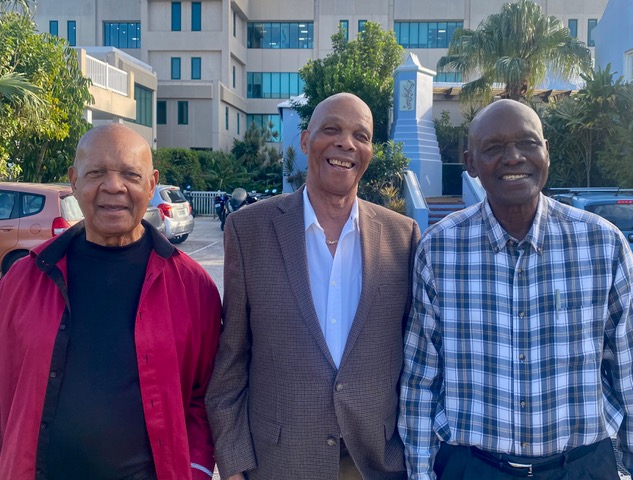
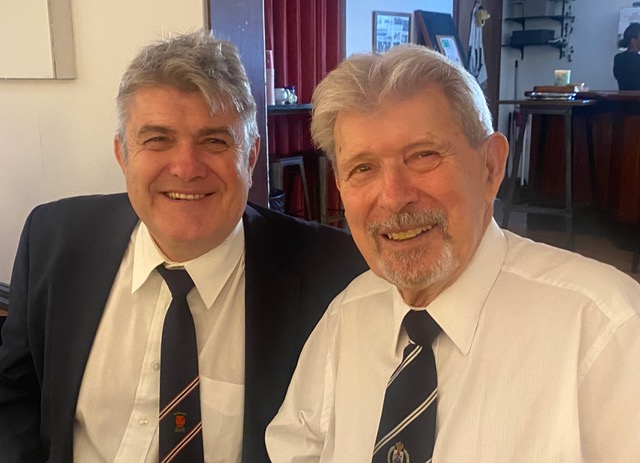


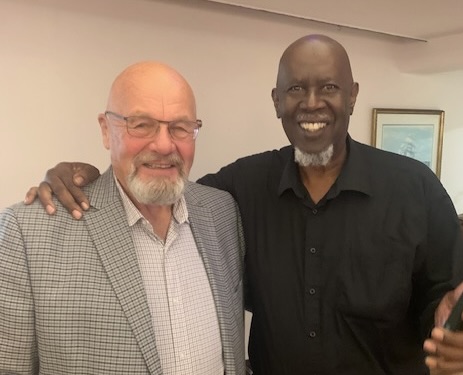
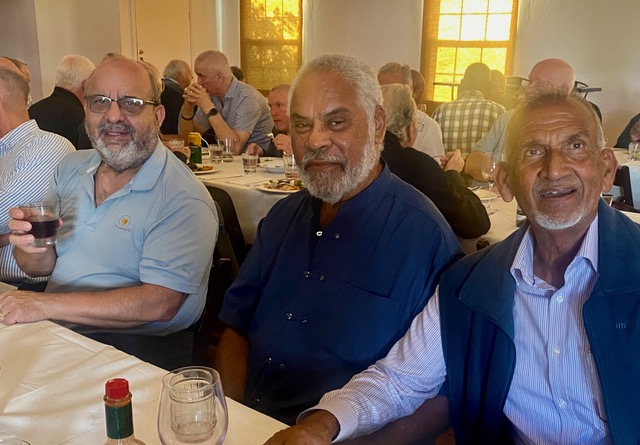

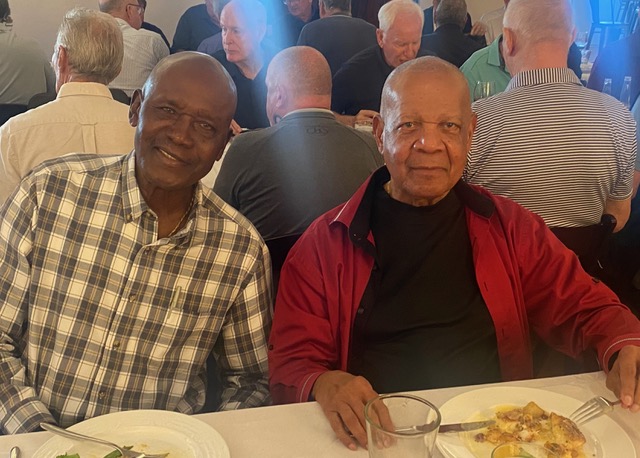


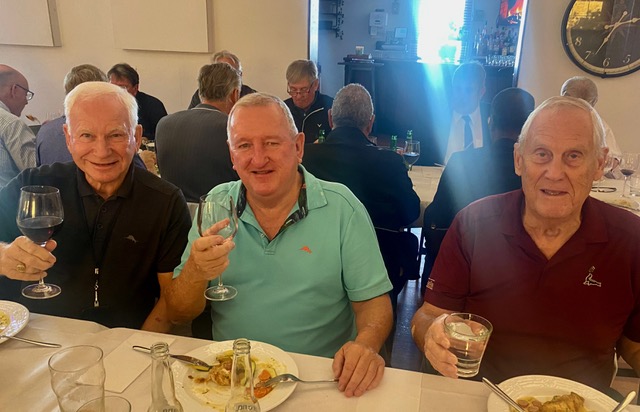
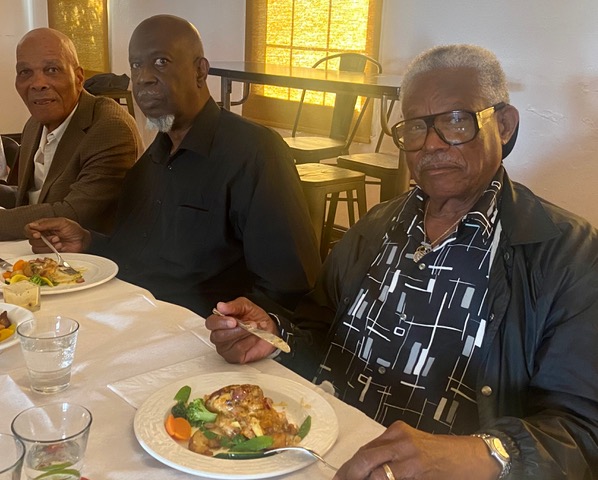
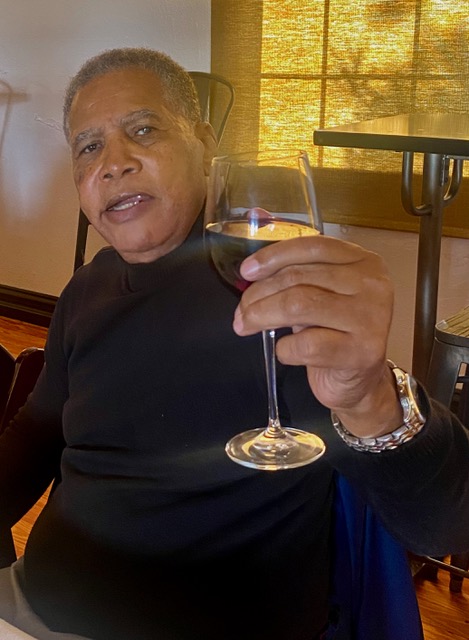
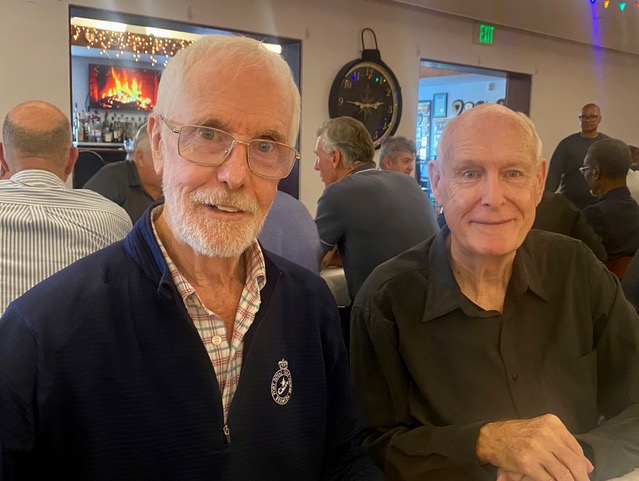

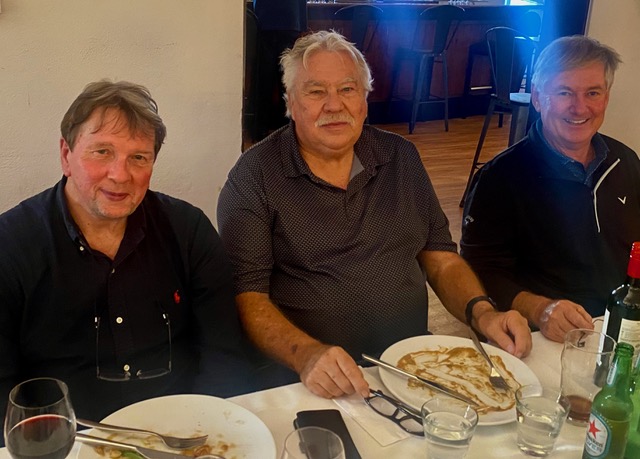
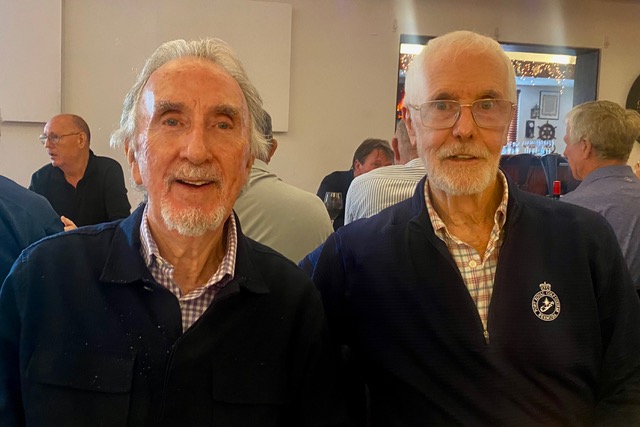
 Pete Counsell and Neil Anderson
Pete Counsell and Neil Anderson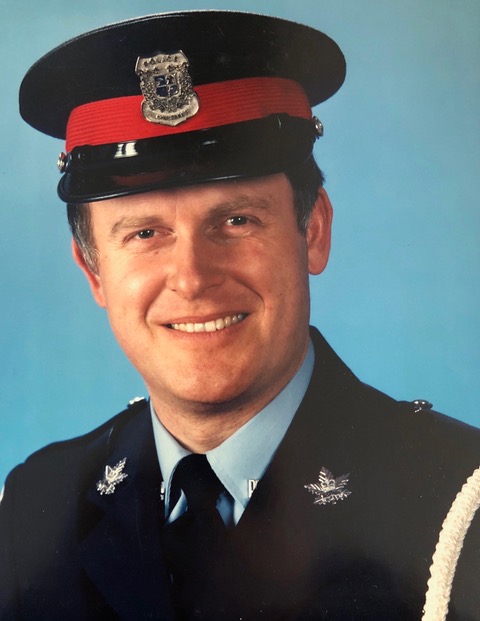 Officer Ian Kittle - Peel Regional Police
Officer Ian Kittle - Peel Regional Police
